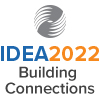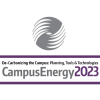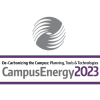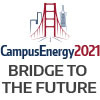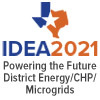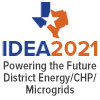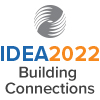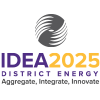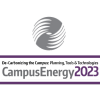
Catalog Advanced Search
-
Contains 4 Component(s), Includes Credits
2022 Annual Conference, Poster #03
The U.S. Department of Energy’s Office of Energy Efficiency and Renewable Energy (EERE) has set ambitious goals for deployment of renewable energy over the next decade. The EERE strategy is to decarbonize the sectors of our economy that are major contributors to our nation’s greenhouse gas profile, including the grid, transportation, industrial sector, buildings and agriculture. Learn how these goals can be addressed through innovative geothermal district heating and cooling technical assistance and deployment for communities and what initiatives DOE’s Geothermal Technologies Office is working on in this space including results from geothermal advanced energy storage studies.
Speaker.
Arlene Anderson, Technology Manager, US Department of Energy-
Register
- Prices available after logging in
- More Information
-
Register
-
Contains 4 Component(s), Includes Credits
2023 CampusEnergy Conference, Session 1D3
Cool TES typically involves Ice or Chilled Water (CHW). Low Temp Fluid (LTF) TES is an alternative with higher efficiency than Ice TES, and smaller volumes with lower supply temps than CHW TES. 20 yrs ago, DFW Airport rehabbed its Central Utility Plant as part of a major expansion. TES was an obvious choice to reduce peak demand costs and minimize chiller capacity & capital. However, CHW TES was not an option for the desired 90,000 ton-hr installation, as DFW’s CHW network operates with a 36 F supply temp, below that achievable with CHW TES. Accordingly, LTF TES with supply/return temps of 36/60 F was selected for the 6-million-gal TES tank. Two decades of experience include demand mgmt, water treatment, and other operational results. Please reach out to speakers directly with
Speakers.
John Andrepont, President, The Cool Solutions Company
Brian Yancy, Assistant Vice President of Utilities and Automation Systems, DFW International Airport-
Register
- Prices available after logging in
- More Information
-
Register
-
Contains 4 Component(s), Includes Credits
2023 CampusEnergy Conference, Session 7D1
Variable power demand presents a huge challenge for campuses looking to meet consumption needs while maximizing energy efficiency. This case discusses a 3 step solution Radix implemented for UMass-Amherst, focused on an Operational Assessment, Energy Audit, and finally, a scenario-based Advisory System that provides ongoing control and visibility over energy usage and makes real-time recommendations to keep the physical plant running at maximum possible efficiency. Expected results are a 3%/$1,000,000 annual reduction in operating costs. Please reach out to speakers directly with
Speaker.
Thiago Bacic, Business Development Manager, Radix Engineering-
Register
- Prices available after logging in
- More Information
-
Register
-
Contains 4 Component(s), Includes Credits
2021 CampusEnergy Presentation 5C2
Staying ahead and being proactive with campus growth is key for utilities to meet future demands. This presentation will provide the importance of utilizing planning and hydraulic modeling for successful thermal distribution expansion. The presentation will utilize Auburn University as a case study. Over the past 20 years, Auburn has expanded as a University, while also extending their chilled water distribution system and converting the campus from steam to central hot water. Planning ahead and utilizing hydraulic modeling has been vital to meet the growth demands.
Speakers.
John Lee,Project Manager,Burns & McDonnell
Rob Engle,Energy Engineer III,Auburn University-
Register
- Prices available after logging in
- More Information
-
Register
-
Contains 4 Component(s), Includes Credits
2021 Annual Conference Session 5A2
Recycled Energy Development (RED) Rochester provides utilities to 16 million SF of building space at Eastman Business Park’s campus in Rochester, NY. RED reduced its carbon footprint by replacing a steam turbine-driven centrifugal chiller with a single 2,000-ton magnetic bearing chiller that contains five variable speed compressors. Through the project, RED was able to lower their natural gas usage and reduce CO2 emissions by more than 23,300 metric tons. Being in Upstate New York, RED can take advantage of cold-weather conditions to operate at 45°F condenser water temperatures and achieve efficiencies as low as 0.15 kW/TR and turndown to 10% capacity.
Speakers.
Ryan Voorhees, Senior Project Manager, CHA Consulting, Inc.
Craig Avalone, Energy Manager, RED-Rochester, LLC-
Register
- Prices available after logging in
- More Information
-
Register
-
Contains 52 Product(s)
Conference proceedings from IDEA2021: Powering the Future: District Energy/CHP/Microgrids
Conference proceedings from IDEA2021: Powering the Future: District Energy/CHP/Microgrids
-
Register
- Prices available after logging in
- More Information
-
Register
-
Contains 89 Product(s)
Conference proceedings from IDEA2022: District Energy for Sustainable Cities
Conference proceedings from IDEA2022: District Energy for Sustainable Cities
-
Register
- Prices available after logging in
- More Information
-
Register
-
Contains 72 Product(s)
Conference proceedings from IDEA2024: District Energy for Sustainable Cities
Since 1909, the IDEA annual conference has connected members of the district energy industry from across North America and around the globe to share and advance best practices, enable collaboration, and leverage member experience and emerging technologies. IDEA2024: District Energy for Sustainable Cities was no different. The conference convened in Orlando, FL, where industry discussions focused on de-carbonizing and fortifying energy systems by partnering, planning, and robust investment in district energy. Industry leaders, energy and environmental experts, and business partners from around the globe came together to share how implementing district energy infrastructure can mitigate and prepare for the impacts of climate change, cut emissions, and provide a more robust, resilient, and connected local economy.
-
Register
- Prices available after logging in
- More Information
-
Register
-
Contains 92 Product(s)
Conference proceedings from the IDEA2025 Annual Conference in Minneapolis, MN
Conference proceedings from IDEA2025 Annual Conference in Minneapolis, MN
-
Register
- Prices available after logging in
- More Information
-
Register
-
Contains 4 Component(s), Includes Credits
2022 Campus Energy Conference, Session 4E3
Due to permitting issues, UIUC was unable to send its wastewater to a water treatment ditch. To allay the issues, PRVN was retained to design a new pre-engineered water treatment building. PRVN provided design so pH excursions from wastewater could be routed to the water treatment ditch. The project also replaced the existing water treatment equipment including the clarifier, pumps, and equalization tank.
Speaker.
Jacob Price, Senior Mechanical Engineer, PRVN Consultants, Inc.-
Register
- Prices available after logging in
- More Information
-
Register
